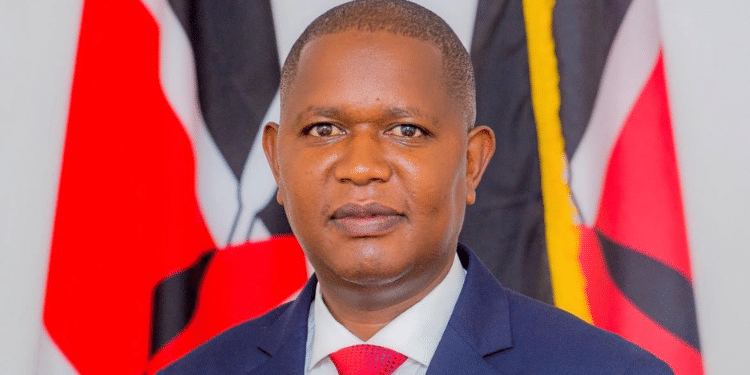What began as a push for accountability by MCAs quickly evolved into a high-stakes political chess match. Sources familiar with the developments suggest that the impeachment effort carried unintended consequences, particularly for President Ruto and Raila Odinga. At the centre of their concern was the potential rise of Deputy Governor James Njoroge Muchiri, should Sakaja be removed. Muchiri is widely perceived as an ally of former Deputy President Rigathi Gachagua, who has been rebuilding his political base in the Mount Kenya region following his own impeachment in October 2024
By TWV Team
The anticipated impeachment of Nairobi Governor Johnson Sakaja collapsed not due to his defense, but primarily because of strategic political calculations and interventions by national leaders. According to multiple political insiders, the motion, which had garnered support from at least 87 Members of the Nairobi County Assembly (MCAs), was abruptly shelved following quiet but decisive interventions from President William Ruto and Orange Democratic Movement (ODM) leader Raila Odinga.
Initially, the impeachment motion appeared to have strong merit. MCAs cited a range of grievances: delayed disbursement of bursaries, stalled ward development projects, and growing frustration over Nairobi’s deteriorating infrastructure. The city’s governance, they argued, had been marked by incompetence, financial opacity, and neglect of core responsibilities.
But what began as a push for accountability quickly evolved into a high-stakes political chess match. Sources familiar with the developments suggest that the impeachment effort posed unintended consequences, particularly for President Ruto and Raila Odinga. At the centre of their concern was the potential rise of Deputy Governor James Njoroge Muchiri, should Sakaja be removed. Muchiri is widely perceived as an ally of former Deputy President Rigathi Gachagua, who has been rebuilding his political base in the Mount Kenya region following his own impeachment in October 2024.
Allowing Muchiri to ascend to Nairobi’s top seat, observers say, would have given Gachagua a strategic foothold in the capital, a critical political and economic hub with influence far beyond city borders.
“Gachagua is quietly positioning himself as a key player in Kenya’s political landscape, especially within Mount Kenya,” said one senior political analyst who requested anonymity due to the sensitivity of the matter. “Ruto and Raila saw the risk of handing him Nairobi on a silver platter.”
President Ruto, aware of the potential implications, is reported to have convened United Democratic Alliance (UDA) MCAs at State House, Nairobi. He urged them to pause the impeachment process and instead seek a mediated solution. Around the same time, Raila Odinga summoned ODM-affiliated MCAs to a private meeting at the Jaramogi Oginga Odinga Foundation, encouraging dialogue over confrontation.
Both leaders share an interest in maintaining political stability in Nairobi and limiting Gachagua’s influence. Their efforts bore fruit. A temporary truce was reached, with MCAs agreeing to suspend the impeachment motion for 60 days. During this period, Governor Sakaja is expected to respond to the MCAs’ grievances and demonstrate concrete action.
While the immediate crisis has been averted, political observers caution that the reprieve is likely to be temporary. The grievances that fueled the impeachment push have not disappeared, and the Governor remains under pressure to deliver. Moreover, the shadow of Rigathi Gachagua continues to loom large, shaping the political calculations of both Ruto and Odinga as they prepare for the 2027 general elections.
“This wasn’t about saving Sakaja, it was about preventing a bigger threat from gaining ground,” a senior UDA source told The Weekly Vision. “If the Governor fails to act decisively in the next three months, we might see the motion revived.”
The episode underscores the intricate power dynamics that define Kenyan politics, where rivalries, alliances, and survival instincts often eclipse ideological lines. For now, Johnson Sakaja remains in office, but his political future and Nairobi’s stability hang in the balance.





